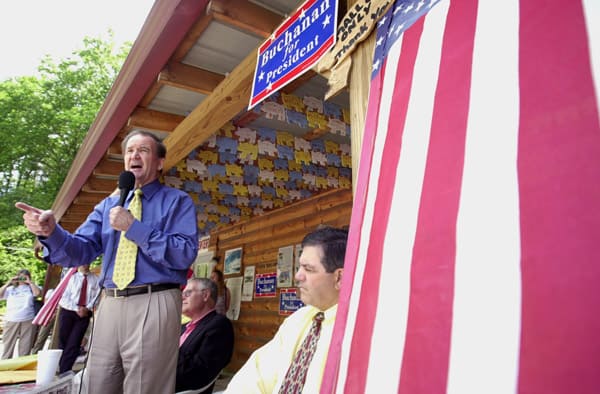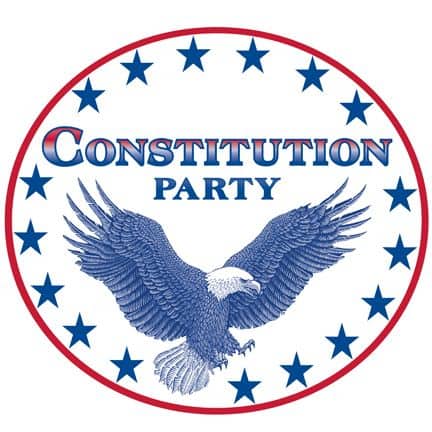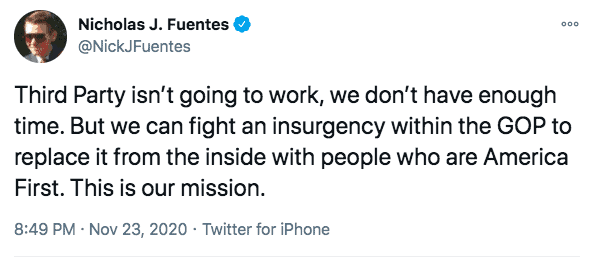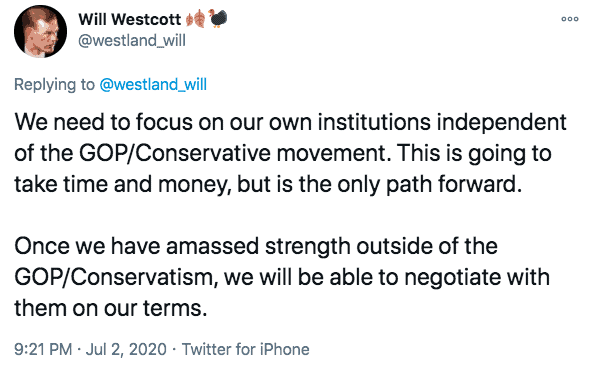The American Right’s Thirty Years’ War
Chris Roberts, American Renaissance, November 29, 2020
Perhaps you consider yourself an oracle,
Mouthpiece of the dead, or of some god or other.
Thirty years now I have labored
To dredge the silt from your throat.
I am none the wiser.
— Sylvia Plath, “The Colossus”
Dissidents who care about “America First” are divided over how to advance their goals now that the 2020 elections are over.
People debating this should know that the same debate has been had, on-and-off, since at least the end of Ronald Reagan’s second term. Anti-establishment leaders try to get the GOP nomination almost every cycle: Pat Roberts in 1988, Pat Buchanan in 1992 and 1996, Ron Paul in 2008 and 2012, etc. At the same time, some elected Republican are always trying to push the GOP towards more nationalist positions. In the 1990s, it was California Governor Pete Wilson, in the 2000s it was Alabama Senator Jeff Sessions, today it’s Missouri Senator Josh Hawley.

June 6, 2000; Pat Buchanan speaks to supporters during a campaign stop. (Credit Image: © Erik S. Lesser / ZUMAPRESS.com)
There have been several attempts to replace the GOP with a new party. The U.S. Taxpayers’ Party (now the Constitution Party) was founded in 1990 as an alternative to President Bush’s milquetoast conservatism. The Reform Party ran impressive presidential campaigns in 1992 and 1996, and a less impressive one in 2000. A full list of minor right-wing and racialist political parties would be tediously long. A few of the more famous ones include the American Independent Party, the American Freedom Party, and the National Justice Party.

None of these efforts, inside and outside the GOP, has worked. Donald Trump was the only exception — but his success had more to do with his star-power and media attention than the work of activists. Indeed, in 2016, more “anti-establishment” activists worked for Rand Paul and Ted Cruz than Mr. Trump. Moreover, once in office, Mr. Trump governed like a typical Republican in many ways, and has not ensured that the GOP will continue as an “America First” party.
Activists should think about the successes of interest groups. Organizations focused on one thing and that lobby for what they want, give legal help to constituents, and raise money for politicians who support them (or sometimes against politicians that oppose them) have much more influence than any third party or single Senator. The best examples are the National Rifle Association, the Home School Legal Defense Association, and the American Israel Public Affairs Committee. NumbersUSA is a single-issue group that focuses on immigration, and its efforts are credited — more than anything else — with derailing President George W. Bush’s pushes for amnesty. A similar group that concentrated on “affirmative action” (or any number of other issues) could prove just as powerful.
The debate over whether to transform the GOP or create something else is not new — and has never gotten anywhere. Dissidents should take a third path and create more pressure groups.

















